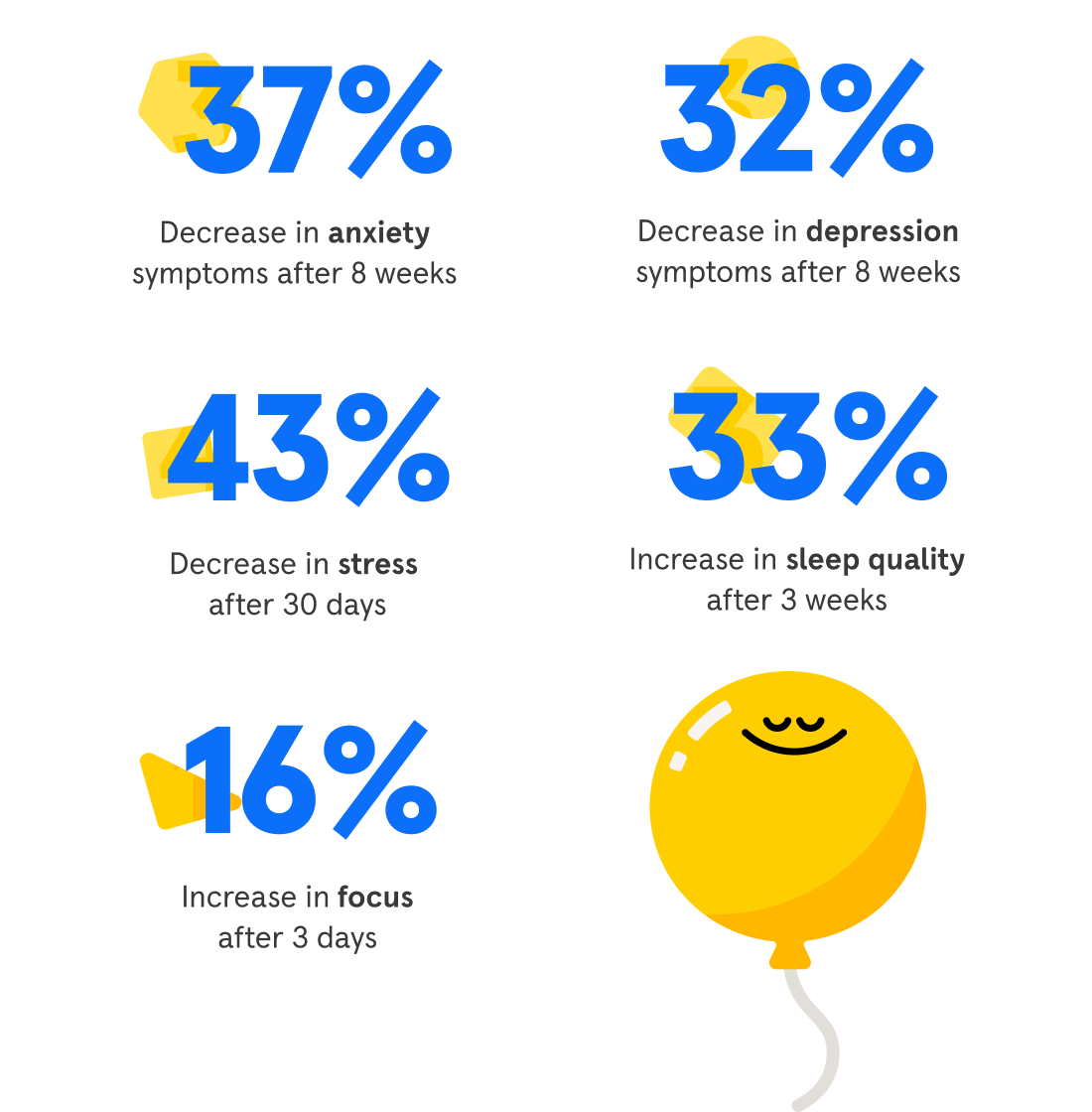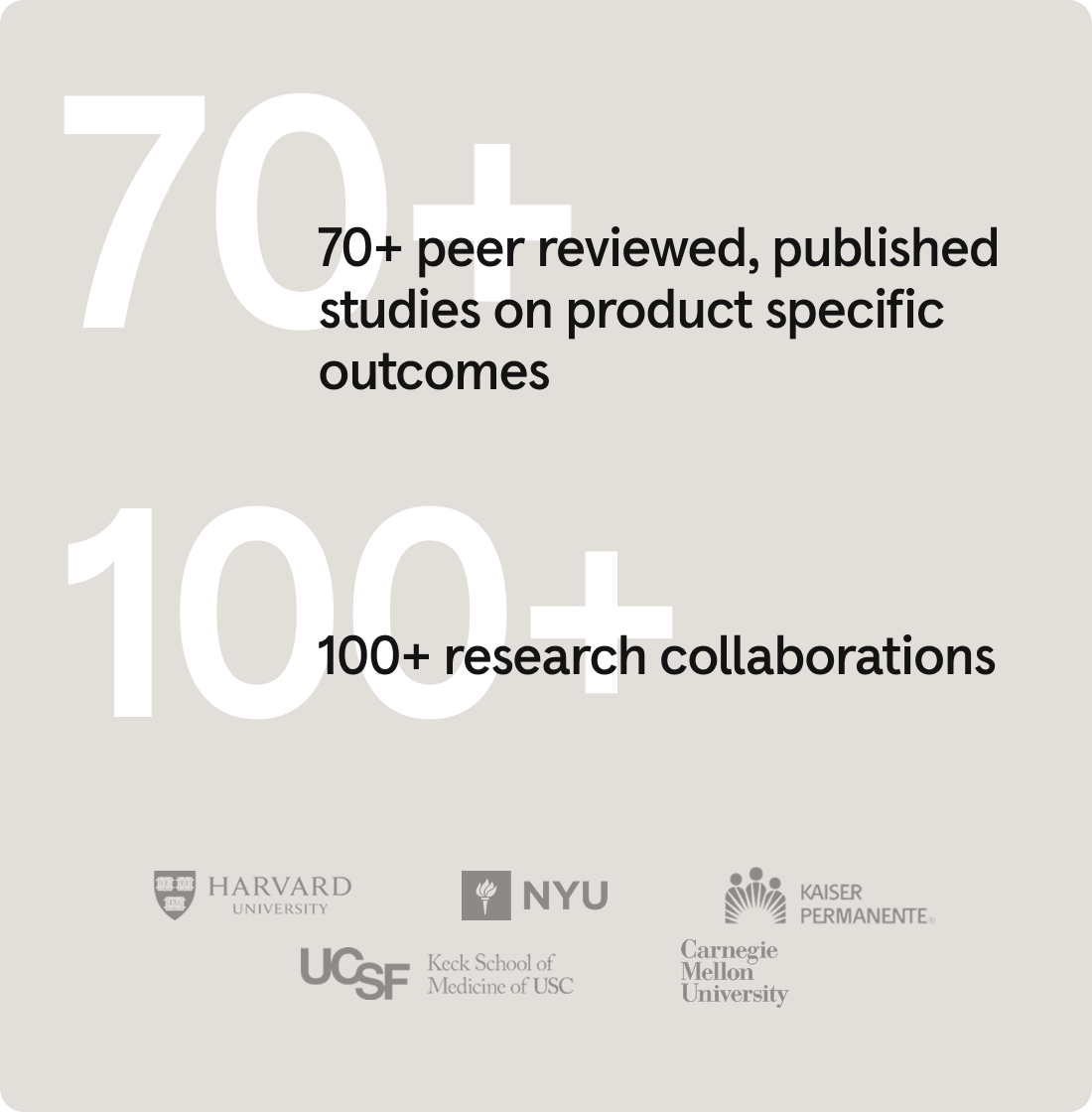Headspace Research
Headspace is the leading mental health companion — but the only way to know if we’re truly accomplishing that is to measure, test, and study its impact. That’s where our research comes in.


The largest body of research in digital mental health
Research has been an integral part of Headspace since day one. We are dedicated to studying everything in our app, from meditation to clinical services, to make sure it works for our members.

Studies show: Headspace works
There are thousands of studies that have shown mindfulness and meditation, coaching, therapy, and psychiatry can positively impact mental and physical health.
And we’ve studied it directly too. The proof is in the research: Headspace can make a big impact on people’s lives — and it doesn’t take long to see the benefits.


Collaborate with us
Headspace has a large network of research collaborators to advance the scientific evidence of Headspace and the mindfulness and mental health fields.
If you would like to include the Headspace app in your research, you may submit your proposal for review here.
Try Headspace for free
- Stress less with hundreds of meditations
- Unwind with sleep sounds and music
- Get in the zone with Focus music
- Try mood-boosting workouts, yoga, and more

Stay in the loop
Be the first to get updates on our latest content, special offers, and new features.
By signing up, you’re agreeing to receive marketing emails from Headspace. You can unsubscribe at any time. For more details, check out our Privacy Policy.
- © 2026 Headspace Inc.
- Terms & conditions
- Privacy policy
- Consumer Health Data
- Your privacy choices
- CA Privacy Notice
